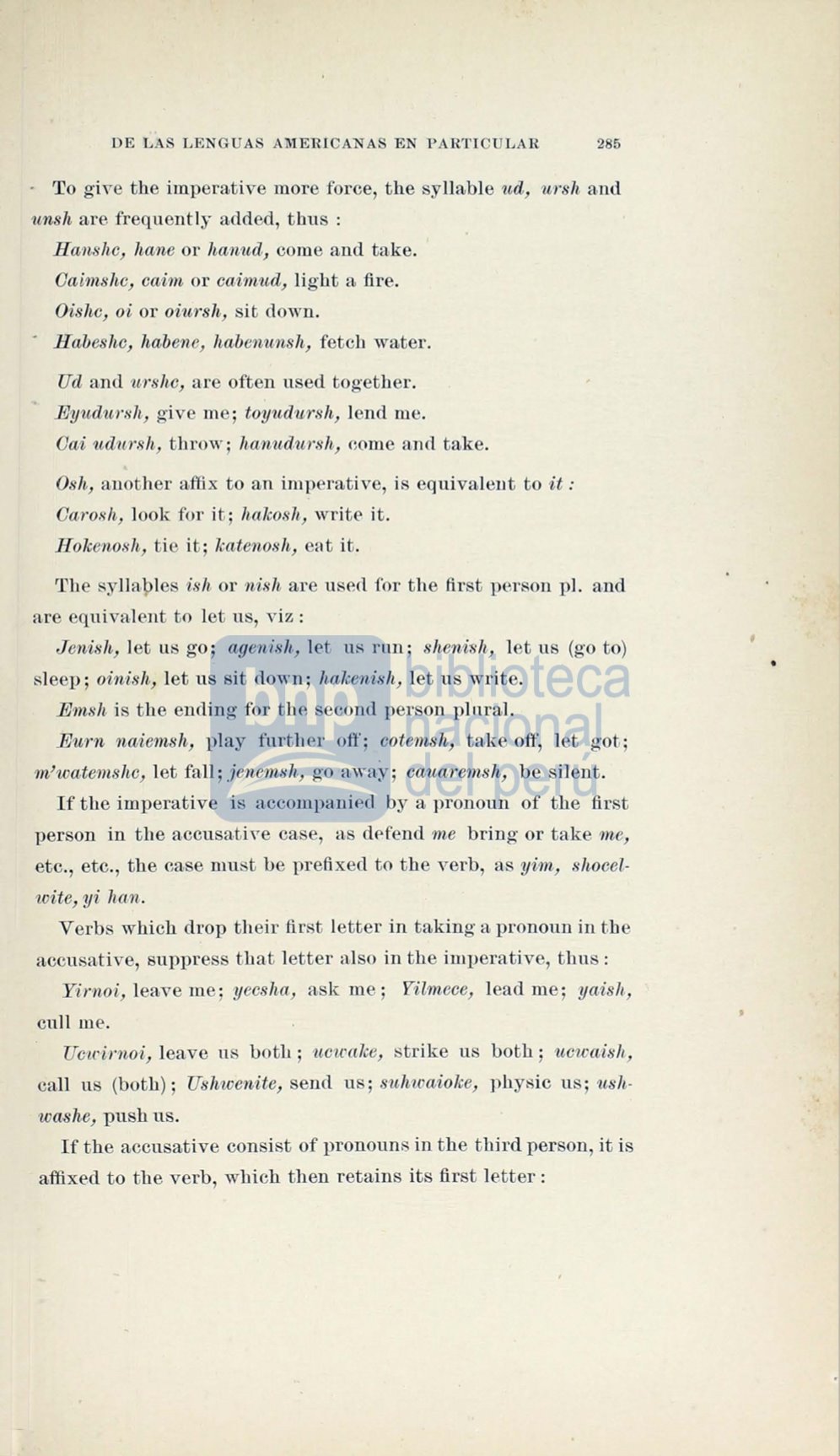

DE LAS LENGUAS All1ERiCANAS EN "PARTICULAR
285
To give the imperative more force, the syllable
itd, itrsh
and
itnsh
are frequently added, thus :
Hanshc, hane
or
hanud,
come and take.
Oairnshc, caim
or
ca,irnitd,
light a tire.
Oishc, oi
or
oiiwsh,
sit down.
Habeshc, habene, habenwnsh,
fetch water.
Ud
and
urshc,
are often used together.
Eyuditrsh,
give me;
toyitdursh,
lend me.
Gai itditrsh,
throw;
hanuditrsh,
come and take.
Osh,
another affix to an imperative, is equivalent to
it:
Garosh,
look for it;
halcosh,
write
it.
Holcenosh,
tie it;
lcatenosh,
eat it.
The syllaples
ish
or
nish
are used for the first person pl. and
are equivalent to let us, viz:
Jenish,
let us go;
agenish,
let us run;
shenish,
let us (go to)
sleep;
oinish,
Jet us sit down ;
halcenish,
let us write.
Emsh
is the ending for the second person plnral.
Eurn naiernsh,
play furth er off;
coternsh,
ta,ke off, let got;
1n'watemshc,
let fall;
.iene1nsh,
go away;
caitarernsh,
be silent.
If
the imperative is accompa,niecl
by
a pronoun of' the first
person in the accusative case, as df'fend
rne
bring or take
me,
etc., etc., the case must be prefixecl to the verb, as
yi?n, shoce/,–
wite, yi ha,n.
Verbs which drop their first letter in taking a pronoun in the
accusative, suppress that letter also in the irnperative, thus:
Yirnoi,
leave me;
yecsha,
ask me;
YUrnece,
lead me;
yaish,
cull me.
Ucwirnoi,
leave us both ;
1icwcilce,
strike us both;
itcwaish,
call us (both};
Ushwenite,
sencl us;
whwaiolce,
physic us ;
itsh–
washe,
push us.
If
the accusati
ve
consist of pronouns in the third person, it is
affixecl to the verb, which then retains its first le.tter :
















